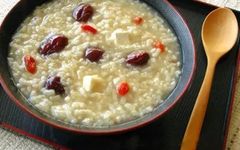Traditional Chinese Medicine (TCM) believes that the body’s qi (vital energy) and xue (blood) are transformed from food by the spleen and stomach, thus making them the foundation of postnatal health. However, irregular eating habits, excessive consumption of fatty foods, overthinking, picky eating, and irregular meal times can harm the spleen and stomach. So how can one regulate a weak spleen and stomach? Let’s explore the methods for regulating the spleen and stomach.
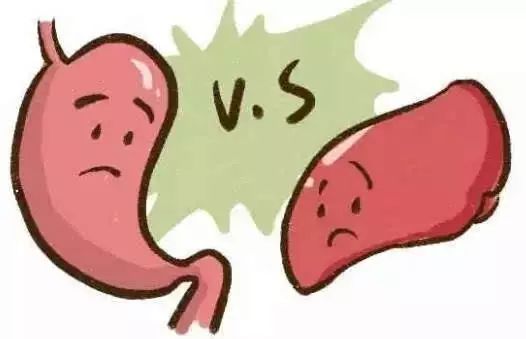
Symptoms of Spleen and Stomach Deficiency
If it manifests as spleen qi deficiency, symptoms include:: abdominal distension, worse after eating, lack of taste, even loss of appetite, loose stools, fatigue, weight loss, limb weakness, shortness of breath, reluctance to speak, pale or sallow complexion, possible edema, pale tongue with white coating, and weak pulse.
If it manifests as spleen yang deficiency, symptoms include:: abdominal distension with reduced appetite, dull abdominal pain, preference for warmth and pressure, cold limbs, and loose stools that are clear and watery. There may also be heaviness in the limbs, edema, difficulty urinating, or excessive thin white discharge. The tongue is pale and swollen with a white slippery coating, and the pulse is deep and weak.
If it manifests as spleen not governing blood, symptoms include:: due to spleen qi deficiency leading to poor transformation and transportation, symptoms may include reduced appetite, abdominal distension, loose stools, fatigue, shortness of breath, sallow complexion, pale tongue with white coating, and weak pulse. This can also lead to various bleeding symptoms such as blood in stools, hematuria, excessive menstruation, and uterine bleeding. Blood in stools associated with spleen not governing blood presents as blood mixed with stools, or blood appearing after stools, with dark purple blood, or black stools, along with symptoms of spleen qi deficiency; uterine bleeding associated with spleen not governing blood manifests as sudden heavy bleeding or prolonged light bleeding, with pale thin blood, pale complexion, fatigue, cold limbs, shortness of breath, reluctance to speak, poor appetite, and loose stools.
If it manifests as middle qi sinking, symptoms include:: pale complexion, dizziness, easy sweating, shortness of breath, fatigue, reduced appetite, loose stools, heavy sensation in the abdomen, frequent urge to defecate, and cloudy urine resembling rice water. This is often seen in conditions like gastric prolapse, kidney prolapse, uterine prolapse, rectal prolapse, and chronic diarrhea.
If it manifests as stomach yin deficiency, symptoms include:: dry mouth and lips, nausea, dry retching, reduced food intake, or difficulty swallowing, discomfort in the chest after eating, dry and hard stools, red tongue with a dry center, little coating, or a glossy dry tongue, and thin rapid pulse.
If it manifests as spleen and stomach cold deficiency, symptoms include:: dull stomach pain that is persistent, cold pain, preference for warmth and pressure, severe pain on an empty stomach, relief after eating, pain exacerbated by fatigue, cold food, or exposure to cold, vomiting clear fluids, reduced appetite, fatigue, cold hands and feet, loose stools, pale tongue with white coating, and weak pulse.
How to Regulate a Weak Spleen and Stomach
1. Appropriate Use of Medicinal Herbs
In TCM, spleen and stomach deficiency is mainly classified into three types: spleen and stomach qi deficiency, spleen yang deficiency, and stomach yin deficiency.
1. Symptoms of spleen and stomach qi deficiency mainly include shortness of breath, fatigue, dizziness, abdominal distension, stomach pain, hiccups, reduced appetite, post-meal fullness, loose stools, and a sallow complexion. For those with spleen and stomach qi deficiency, Shen Ling Bai Zhu San (Ginseng and Atractylodes Powder) and Xiang Sha Yang Wei Wan (Fragrant Sand Stomach Nourishing Pill) can be used.
2. Spleen yang deficiency is mainly characterized by: cold abdominal pain, abdominal pain and diarrhea after consuming raw, cold, or greasy foods, and loose stools. For spleen yang deficiency, Fu Zi Li Zhong Wan (Aconite and Ginseng Pill) can be used.
3. Stomach yin deficiency is mainly characterized by deficiency heat, dry mouth, easy hunger, stomach acid, dull pain, and oral ulcers. For stomach yin deficiency, Shen Mei Yang Wei Ke Li (Ginseng and Plum Stomach Nourishing Granules) can be used.
2. Emotional Factors Have a Significant Impact on Appetite, Digestion, and Absorption
Therefore, to maintain the health of the spleen and stomach, it is essential to keep a good emotional state. Studies show that negative emotions can lead to decreased appetite, abdominal distension, warmth, and indigestion, while positive emotions benefit the normal functioning of the gastrointestinal system.
3. Dietary Regulation is Key to Maintaining Spleen and Stomach Health
Thus, meals should be regular, with set times and portions, avoiding overeating. A plant-based diet should be prioritized, with a balance of meat and vegetables. Regular consumption of vegetables and fruits is necessary to meet the body’s needs and maintain smooth bowel movements. It is advisable to avoid stimulating and hard-to-digest foods, such as sour, spicy, fried, hard, and sticky foods, and to minimize the intake of raw and cold foods.
4. Pay Attention to Temperature
As the saying goes, “Nine out of ten stomach diseases are due to cold.” This is indeed a piece of experiential advice, so paying attention to temperature is very important. During the unpredictable climate of spring and autumn, patients with cold stomach pain should keep warm and avoid cold exposure; those with spleen deficiency and diarrhea can apply warming plaster to the navel and should also avoid raw and cold fruits. If one feels cold in the stomach area, ginger tea can be taken promptly.
5. Engage in Appropriate Physical Activities, Such as Walking, Jogging, Practicing Tai Chi, or Qigong
Appropriate physical exercise can enhance gastrointestinal function, increase gastrointestinal motility, promote the secretion of digestive juices, aid in the digestion and absorption of nutrients, improve blood circulation in the gastrointestinal tract, and promote its metabolism, delaying the aging of the digestive system. Additionally, massaging the upper and lower abdomen in a back-and-forth motion about 40-50 times before bed can help strengthen spleen function, relieve stagnation, and promote the expulsion of turbid qi, providing good health benefits for the spleen and stomach.
Recommended Recipes for Weak Spleen and Stomach
Japonica Rice Porridge:50 grams of japonica rice and 10 grams of raisins, cook the japonica rice in an appropriate amount of water until 90% cooked, then add the raisins and continue to simmer until soft.
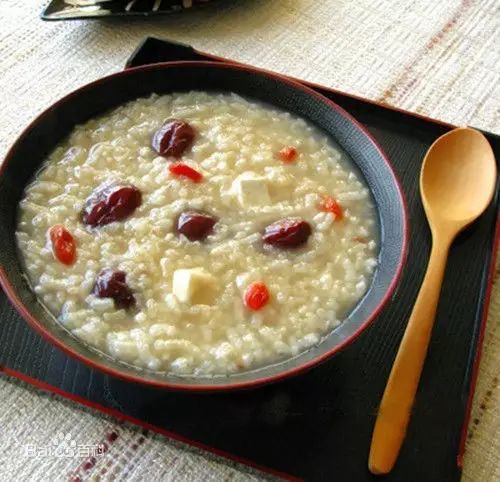
Shiitake Mushroom Beef Soup:10 grams of soaked shiitake mushrooms and 30 grams of lean beef, coat the beef with flour, add the shiitake mushrooms to boiling soup, then add the beef slices along with an appropriate amount of monosodium glutamate, salt, and sesame oil, and boil until cooked.
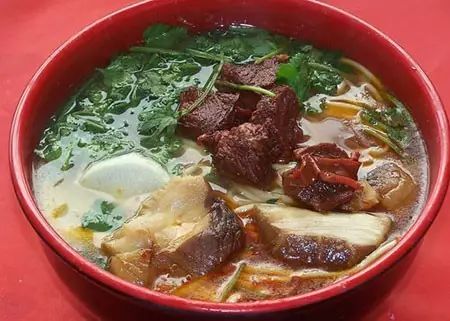
Stir-fried Beef Tripe with Shredded Potatoes:50 grams of cooked beef tripe cut into shreds, 80 grams of potatoes, shredded and rinsed to remove surface starch, heat oil in a pan, add some chopped green onions and minced garlic, then stir-fry the beef tripe and potato shreds, adding an appropriate amount of beef broth, salt, and monosodium glutamate until the potatoes are cooked.
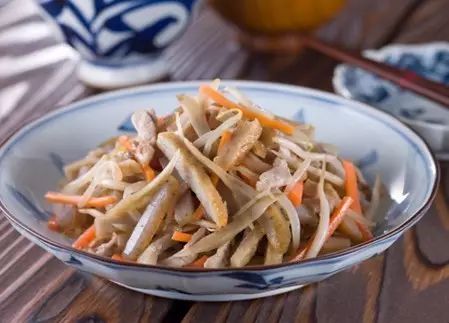
Bean Paste Dumplings:Two portions of fresh broad beans and one portion of chicken, minced and mixed with salt, monosodium glutamate, fresh ginger juice, and Sichuan pepper water to make the filling. Use wheat flour to make the dough, shape into dumplings, and steam in a bamboo steamer for 20 minutes.
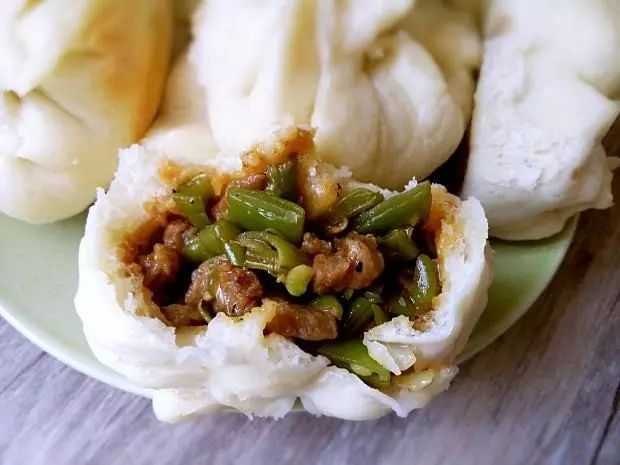
Due to the physiological interconnection between the spleen and stomach, they also influence each other pathologically. Therefore, for your health, the Department of Spleen and Stomach at Fugou County Traditional Chinese Medicine Hospital reminds you to take good care of your spleen and stomach.
Department of Spleen and Stomach at Fugou County Traditional Chinese Medicine Hospital
Established in 1983, this department is a key specialty of Fugou County Traditional Chinese Medicine Hospital, proficient in TCM and integrative treatment of gastroesophageal reflux disease, gastric and duodenal ulcers, chronic gastritis, functional dyspepsia, diarrhea and constipation, acute and chronic hepatitis, upper gastrointestinal bleeding, and other gastrointestinal and hepatobiliary diseases as well as difficult cases.
The department offers various unique preparations and external treatment methods, including gastrointestinal thread embedding therapy, widely applied in clinical practice with significant efficacy, achieving excellent social benefits. It highlights the TCM characteristics of “simple, convenient, economical, and effective.” Emphasizing the spleen and stomach as the foundation of postnatal health, the approach of “preventing disease before it occurs” starts with regulating the spleen and stomach, providing suitable conditioning methods based on individual constitution to enhance physical health and benefit the public.
Department Leader:
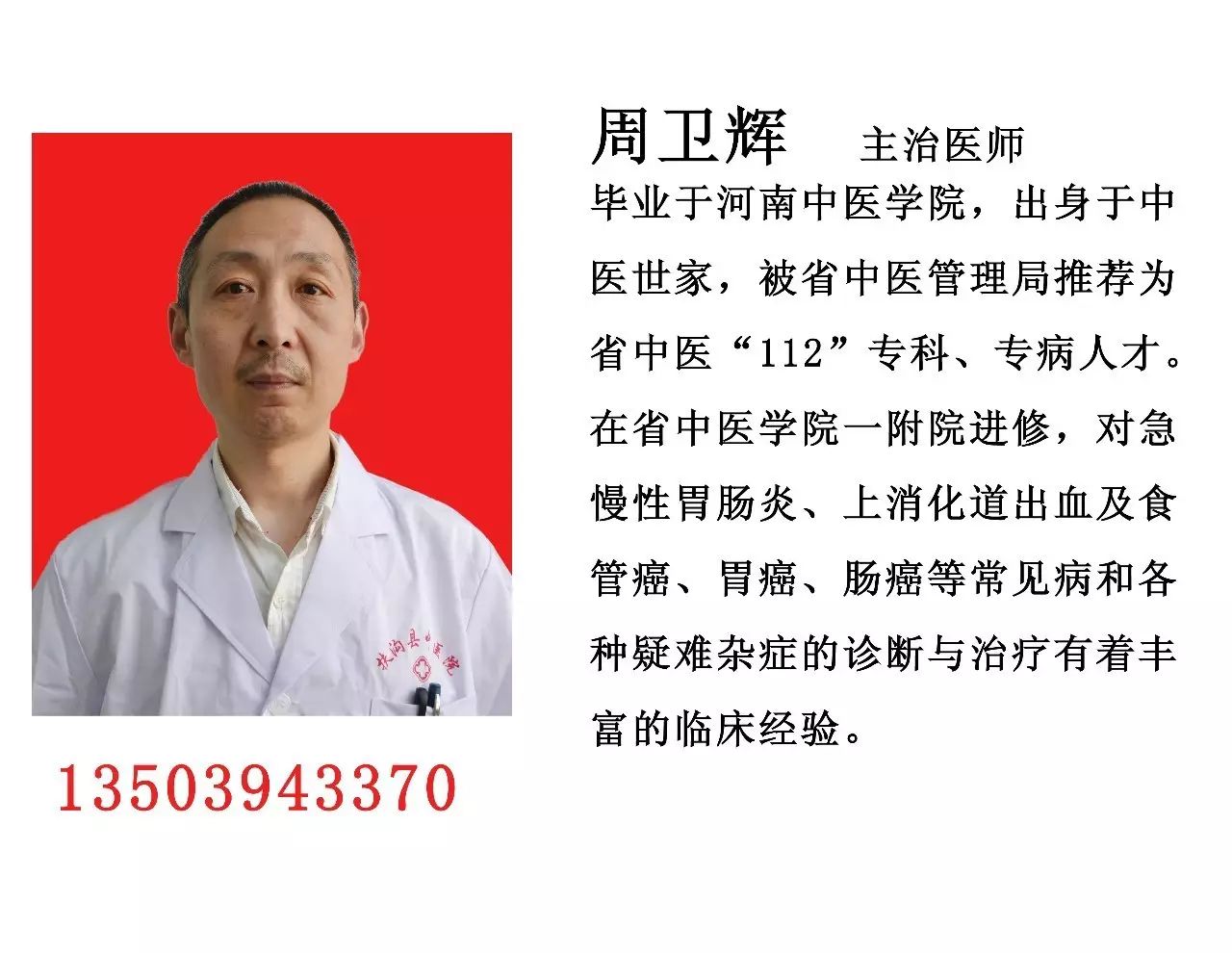

Source: Partially adapted from Baidu Encyclopedia

